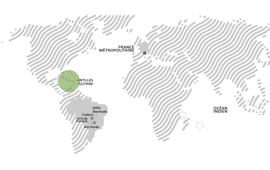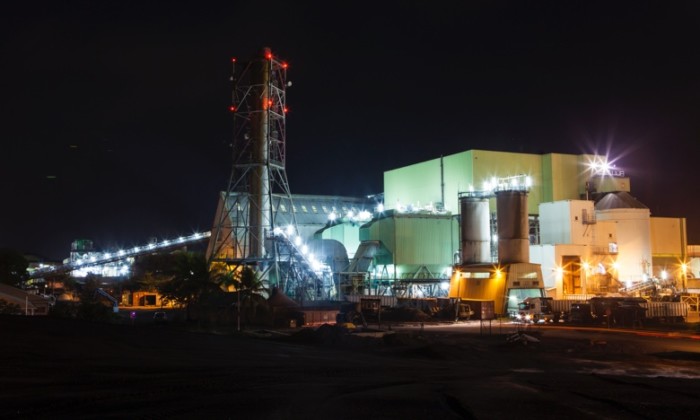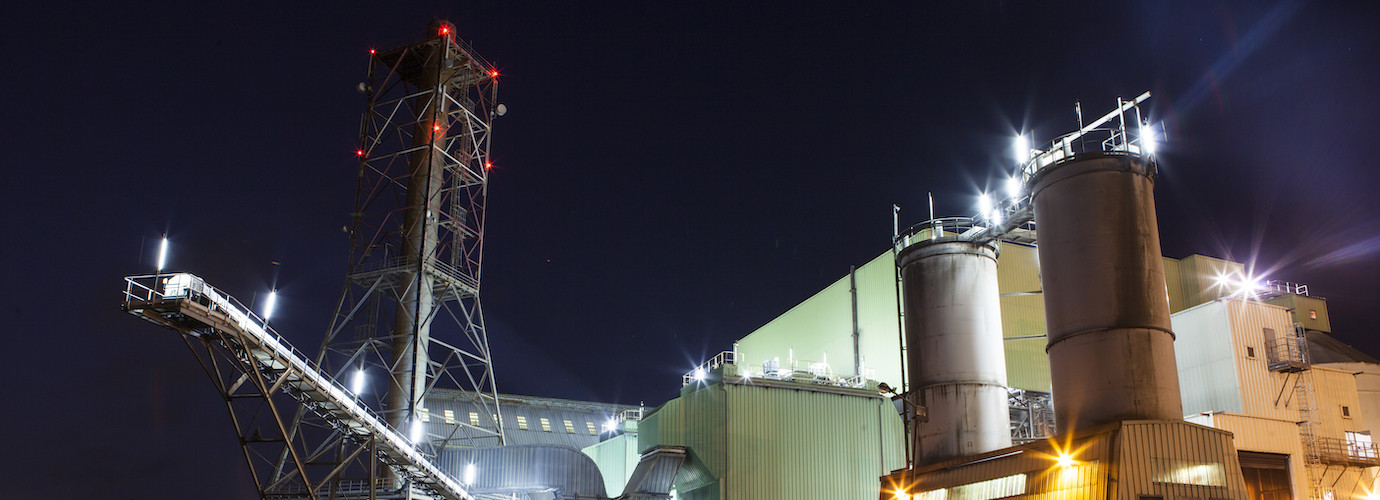
- Type: Thermal biomass power plant
- Installed since: 1998
- Installed capacity: 102 MW
- Workforce: 90
The Le Moule biomass-fuelled thermal power plant is Albioma's longest-established thermal plant in Guadeloupe, supplying 30% of the electricity available via the network and making use of locally-sourced and renewable resources.
Activities
The Le Moule cogeneration plant is one of Albioma’s long-established plants. It was commissioned in 1998 and has an installed capacity of 102 MW. As well as contributing to Guadeloupe’s energy independence, the plant’s activity – based partly on recovering bagasse – supports the local sugar cane industry.
Biomass and energy production
During sugar harvests, the Le Moule plant uses bagasse (a fibrous residue of sugar cane) to produce renewable electricity and low-pressure steam. Aiding the circular economy, part of the energy produced is supplied to the adjacent Gardel sugar refinery, which operates using nearly 1,000 hectares of sugar cane in Guadeloupe.

With the conversion of Albioma Le Moule, the coal era in the French Overseas Territories definitively comes to an end
Since November 2020, unit 3 of the plant has operated exclusively on biomass.
Albioma has announced its plan to phase out the use of coal at its Le Moule site (ALM1 and ALM2 units) in Guadeloupe, following a decision by the French Energy Regulatory Commission (CRE) on 13 June 2024 and the signature of an amendment to the power purchase agreement with EDF for the conversion of the plant to biomass.
Work on converting the ALM2 unit is already under way, with the aim of having the plant running on 100% biomass by 2025, using available local biomass sources (bagasse, forest wood, prunings, etc.), supplemented by certified imported wood pellets from sources including our production plant in Canada. The ALM1 unit will run solely on bagasse during the sugar harvest, and will be mothballed the rest of the time.
The CRE’s decision also provides for the investment required to extend the operation of the ALM2 unit by 14 years. As a result, the power purchase agreement for ALM2 has been extended from 2033 to 2047.
As stated in the deliberation, “Albioma will benefit from lessons learned from the conversion of all its other plants in French overseas departments and territories […]. In addition to this wealth of feedback information, the conversion of ALM2 and the cessation of coal use at ALM1 will enable Albioma to stop importing coal altogether and use biomass exclusively for all its steam plants in the West Indies.”
Albioma Chairman Frédéric Moyne commented: “The support of the Albioma teams will enable the conversion of the Le Moule power plant to biomass to begin immediately. This work is in response to a number of challenges, including the phasing-out of coal in Guadeloupe’s electricity production by 2025, and a subsequent increase in the proportion of renewable energy in the island’s long-term energy mix. In addition to this very good news for Guadeloupe, Le Moule had been the last remaining coal-fired power station in overseas France, so its conversion marks the end of coal in the French overseas territories, which I am particularly pleased about..”
In due course, the conversion will increase the renewable portion of Guadeloupe’s energy mix from 35% to 45% and will reduce greenhouse gas emissions by some 200,000 metric tons of CO2 equivalent per year; in other words, an 87% decrease in direct emissions compared with the current operation of the plant.

